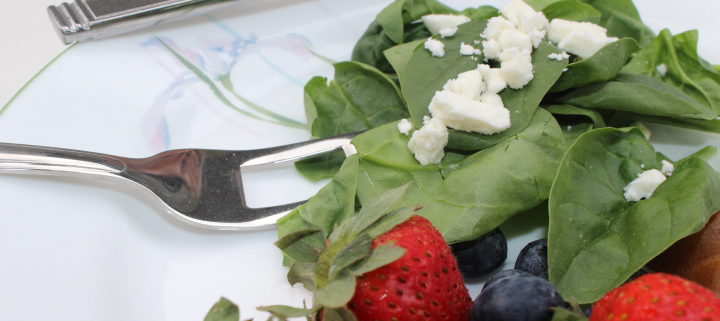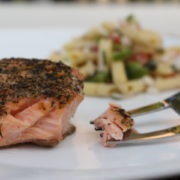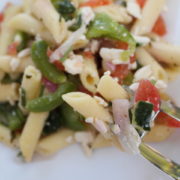Why Eating Slowly May Help You Feel Full Faster
Many diet books advise people to chew slowly so they will feel full after eating less food than if they ate quickly. As we explain in the current issue of the Harvard Mental Health Letter, eating slowly doesn’t always work, but when it does, the reason has as much to do with the brain as with the gut.
Scientists have known for some time that a full stomach is only part of what causes someone to feel satisfied after a meal; the brain must also receive a series of signals from digestive hormones secreted by the gastrointestinal tract.
Stretch receptors in the stomach are activated as it fills with food or water; these signal the brain directly through the vagus nerve that connects gut and brainstem. Hormonal signals are released as partially digested food enters the small intestine. One example is cholecystokinin (CCK), released by the intestines in response to food consumed during a meal. Another hormone, leptin, produced by fat cells, is an adiposity signal that communicates with the brain about long-range needs and satiety, based on the body’s energy stores. Research suggests that leptin amplifies the CCK signals, to enhance the feeling of fullness. Other research suggests that leptin also interacts with the neurotransmitter dopamine in the brain to produce a feeling of pleasure after eating. The theory is that, by eating too quickly, people may not give this intricate hormonal cross-talk system enough time to work.
Of course, as anyone who has tried eating slowly in order to lose weight can attest, it’s not quite that simple. People who are obese, for example, may suffer from leptin resistance, meaning that they are less responsive to satiety or pleasure signals from this hormone. People are also sensitive to cues in the environment — such as the alluring smell of chocolate chip cookies or the sight of a juicy burger — that can trigger the desire to eat.
Appetite is complex, and dieting is a challenge. Even so, people who are trying to lose weight may want to start by chewing more slowly. In that way, they allow themselves enough time to experience pleasure and satiety.
What are your thoughts about this theory? Has chewing slowly enabled you to feel full faster?







